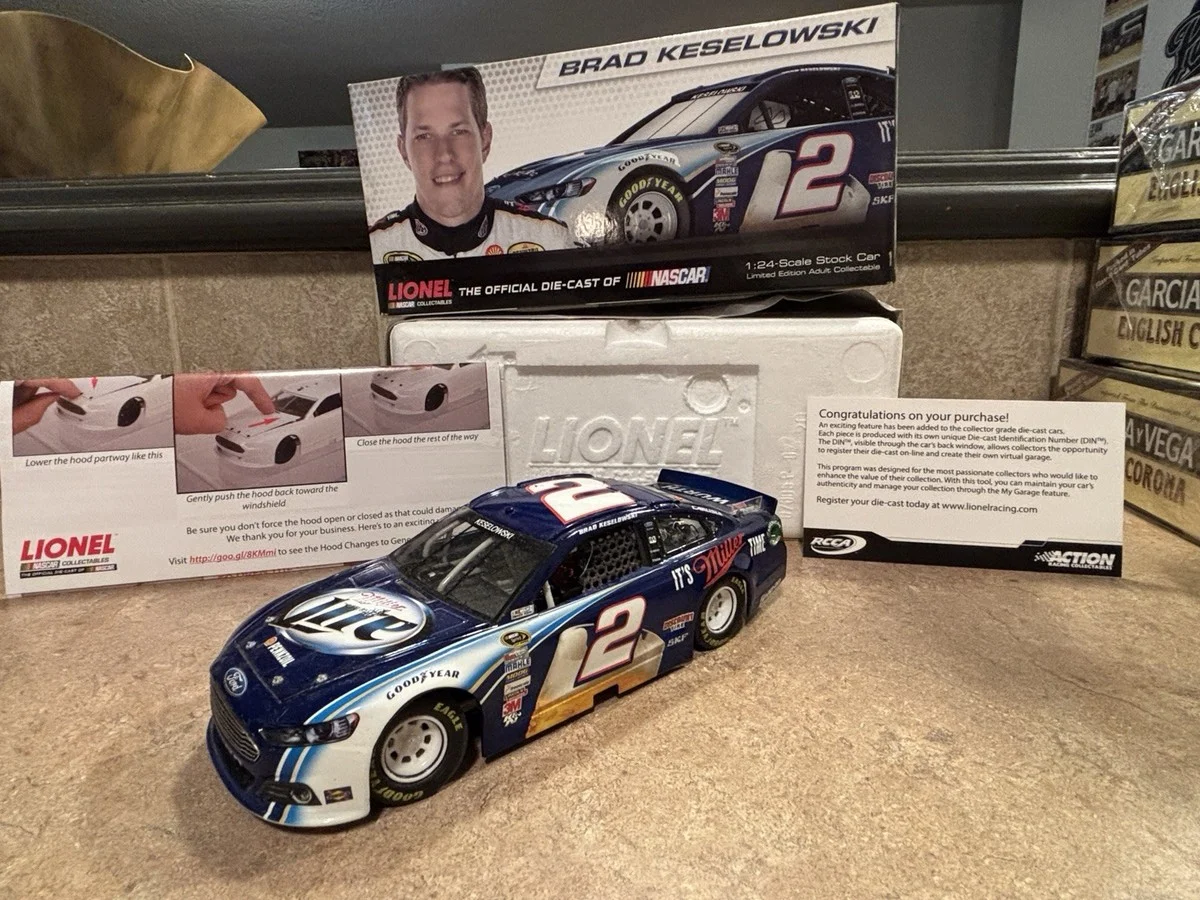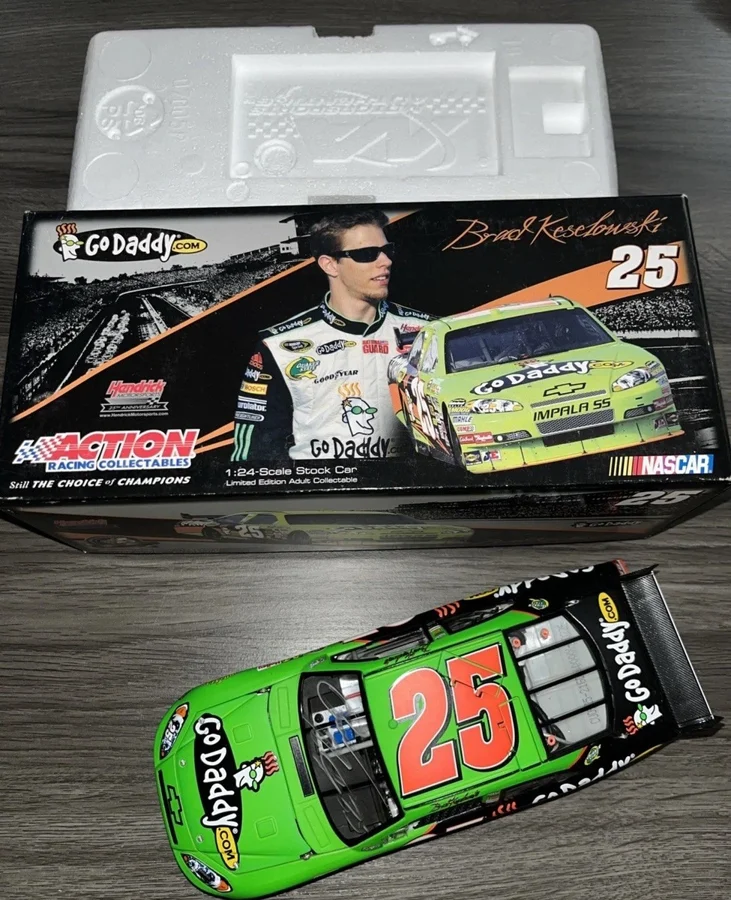NASCAR is facing turmoil with rapidly declining fan engagement and falling television ratings, despite a substantial $1.1 billion broadcast deal. Brad Keselowski, noted for his business insight within the sport, recently criticized the current model, arguing that fundamental flaws in NASCAR’s track management are at the heart of the issue. The ongoing struggles with the NASCAR business model, according to Keselowski, are jeopardizing both the sport and its teams.
Keselowski Calls Out NASCAR Track Business Model
In his appearance on the Stacking Pennies podcast, which is hosted by fellow driver Corey LaJoie, Brad Keselowski discussed the pressing issues impacting NASCAR’s health. As both the 2012 Cup champion and RFK Racing owner-driver, Keselowski’s criticism centers on the way racetracks are operated. He stressed that the tracks’ business approaches are critically flawed, lacking in variety when it comes to revenue streams. This unsustainable dependency on television contracts leaves venues particularly exposed if broadcast revenues falter or plateau, deepening the industry’s vulnerability.
“The number one problem with the sport right now is the model with the tracks — that’s the number one issue, hands down, in my opinion. The tracks aren’t able to generate enough revenue on their own; they’re wholly reliant on the TV money. And they’re comfortable with that, which is the scariest part of all.”
– Brad Keselowski, via Stacking Pennies podcast
Keseolowski stressed that what worries him most is that track operators appear at ease with their precarious situation, making no significant moves to diversify their incomes. With little incentive for innovation or promotion outside of what the TV contract provides, the shortfall in on-site engagement and ticket sales exacerbates problems for participating teams whose earnings are directly linked to event success.

Ripple Effects of a Broken System on Teams
This fragile model generates further challenges within NASCAR’s ecosystem, reaching all the way down to teams and drivers. Insufficient track promotions and stagnant event marketing mean fewer fans turn out to watch, slashing teams’ share of direct event revenue and weakening their incentives to race. For organizations like RFK Racing and others, this directly affects morale and financial stability.
“This creates a subset of problems that flow down through the ecosystem, where we don’t promote enough to the fans at the track to sell tickets. We cascade into other issues for the teams, because they’re not necessarily incentivized. The costs are mostly covered before the day ever starts.”
– Brad Keselowski, via Stacking Pennies podcast
Teams find themselves in a bind, often with their essential operating costs met through broadcasting revenue before a race begins. However, this reliance weakens the motivation to drive fan turnout or experiment with event offerings, leaving long-term growth stagnant and deepening the overall crisis. Former and current drivers, as well as influential voices including Keselowski, warn that unless this model changes, the core vitality of NASCAR — its fan connection and grassroots roots — could erode further.
Teams Forced Into Sponsorship Dependency
Keseolowski extended his concerns by emphasizing the consequences of teams’ narrowed revenue options. With race-day earnings dwindling due to low ticket sales and lack of promotional innovation, teams are forced to become heavily dependent on sponsorship dollars. Consequently, every major team decision—from branding to personnel—ties back to sponsor demands, particularly those of Fortune 500 companies eager for controlled, risk-free representation.
“That flows down into revenue problems for the teams, which makes them wholly reliant on sponsorship. This creates another subset of issues where the authenticity of the drivers and people in the sport is decreased, because they’re beholden to representing Fortune 500 companies, or else they don’t have a job.”
– Brad Keselowski
This relentless need to satisfy sponsors undermines the spontaneity and character of teams and drivers alike. According to Keselowski, drivers today struggle to develop an individual identity beyond their corporate roles. They must adhere to sponsor expectations, often at the expense of showing their true personalities or connecting with fans on a genuine level. As the business model narrows further, drivers become less accessible, diluting what makes the sport relatable and exciting for many.
NASCAR’s Lackluster Promotion Weakens Superstar Appeal
This overall lack of authenticity and dwindling opportunity for personality expression have prevented NASCAR from producing superstar drivers with broad cultural impact. In the past, figures like Dale Earnhardt or Jeff Gordon personified the sport, reaching fans beyond core racing enthusiasts. Today, the dependence on business-driven decisions stifles the rise of new icons, causing the fan base to become less engaged and less loyal over time.
Keselowski’s pointed remarks have started conversations within the community about the urgent need to overhaul the sport’s economic structure. Key entities from RFK Racing, NASCAR teams, and leadership circles are under mounting pressure to find sustainable solutions that balance financial stability with drivers’ ability to build their own brands.
The Road Ahead for NASCAR
NASCAR’s fundamental economic and cultural challenges, punctuated by Brad Keselowski’s warnings, highlight an increasingly distressed environment marked by shrinking fan turnout, overwhelmed teams, and suppressed personalities among drivers. As organizations like RFK Racing and others grapple with these questions, NASCAR needs to address its reliance on broadcasting revenue and sponsorship if it wants to return to previous heights. Without significant innovation and renewed focus on direct fan engagement, the risk of an irreversible decline looms large over the sport.
Clipped this from @keselowski 's appearance on Stacking Pennies because I thought it was interesting: He says the biggest problem with NASCAR currently is the business model with the tracks, which are wholly reliant on TV money because they can't generate enough revenue on their… pic.twitter.com/itQS1Xx848
— Steven Taranto (@STaranto92) September 25, 2025
